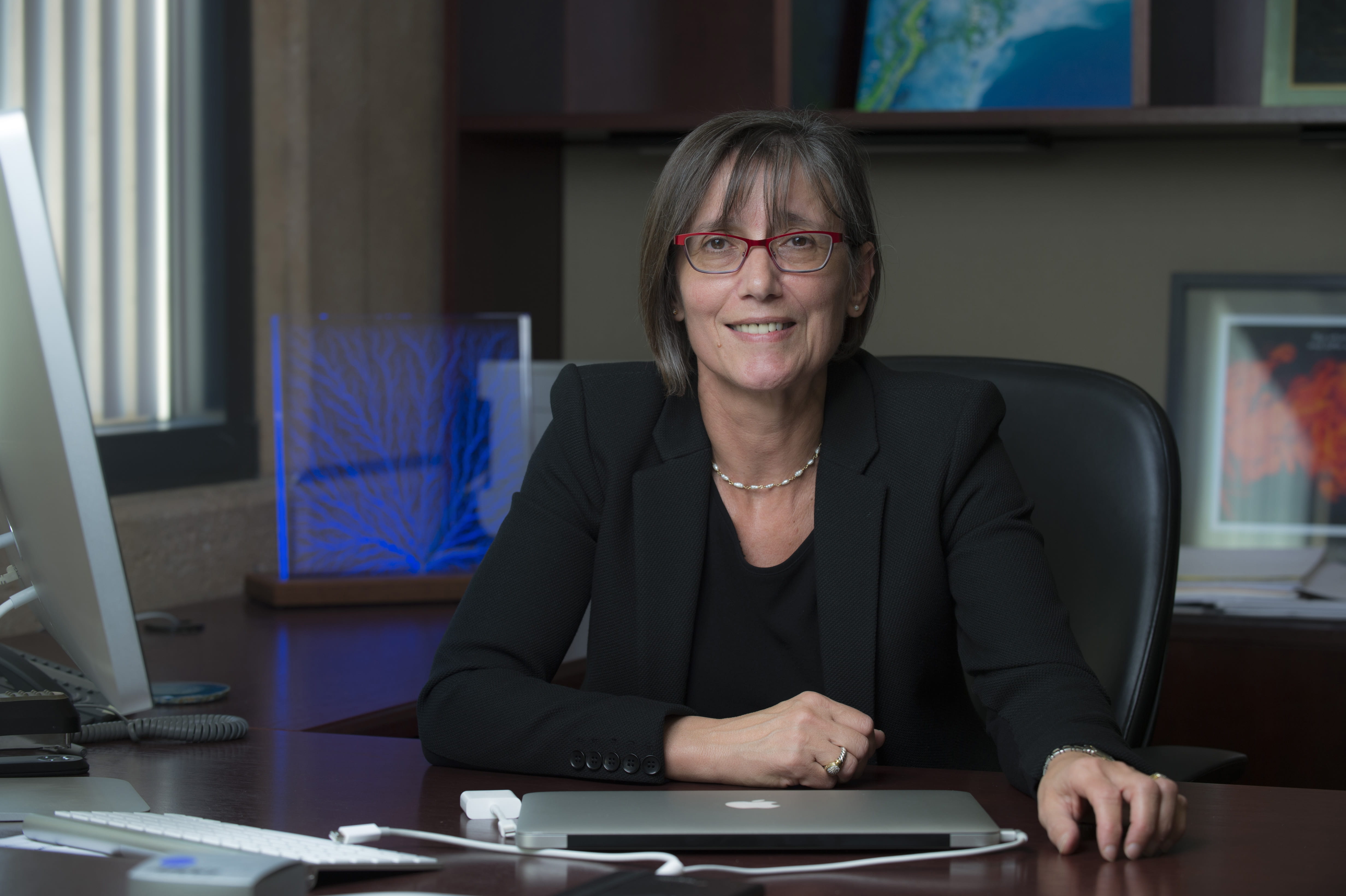On the water front
Renowned hydrologist joins UCI to lead interdisciplinary research efforts

Efi Foufoula-Georgiou, an expert in hydrology and water resources, recently joined the University of California, Irvine as a Distinguished Professor of civil & environmental engineering. After nearly three decades at the University of Minnesota, with her research laboratory perched atop a waterfall on the Mississippi River, she moved to a region suffering from a severe drought, but the native of Greece is not complaining.
“I love it here. The research environment is vibrant, the collegiality inspiring, and UCI is at the cusp of unprecedented academic and intellectual growth. And the Mediterranean climate is encoded in my skin. I feel completely at home!” she says.
Her relocation heralds other changes as well.
“There will definitely be a shift in my research to more California-centric problems,” says Foufoula-Georgiou, who earned master’s and doctoral degrees in environmental engineering at the University of Florida. “Drought, climate change and water management, trade-offs between human and environmental water uses, coastal flooding and ecosystems will be some of the new challenges my research group will address.”
Experts from a variety of disciplines are being recruited throughout the UC system to apply their skills to the ongoing drought in the southwestern United States, the effects of El Nino and other multidecadal climate phenomena, integrated watershed management, hydropower and water infrastructure.
Brought to UCI as part of the campus’s High Impact Hiring Plan, Foufoula-Georgiou has extensive experience in leading interdisciplinary research. She directed a National Science Foundation Science and Technology Center, the National Center for Earth-Surface Dynamics – funded by $40 million over 10 years – which focuses on understanding how landscapes and ecosystems co-evolve and how this knowledge could benefit watershed management and restoration.
One of her current projects is studying water sustainability in the northern Midwest in the face of intensified farming and climate change. “Row crop agriculture in the Midwestern U.S. produces 40 percent of the global corn and soybean supply from less than 1 percent of the Earth’s land surface,” Foufoula-Georgiou says.
“Three primary factors make this possible: draining natural wetlands, avoiding water-logged soils by installing surface ditches and subsurface tile drainage, and increasing fertilization. The combined environmental effect is alarming: water quality impairments in streams and lakes, degraded drinking water, algal blooms, declining aquatic species, and large contributions of nitrogen to the Gulf of Mexico dead zone.”
The term she uses for this cascade of events is “human-amplified natural change.”
“The human footprint on landscapes is seen everywhere, not just in agriculture,” she says. “How we sustain intensified human activities – such as urbanization, land use change, coastal development, subsurface exploration, etc. – while ensuring environmental integrity is an important and still unsolved problem.”
Foufoula-Georgiou is leading another research project on the sustainability of river deltas around the world. “The convergence of climate, sea level rise, local exploration and upstream development has created the perfect storm for most deltas,” she says. “The real challenge is to use our science to inform policy and management before it’s too late.”
She notes that UCI’s many multidisciplinary centers and research initiatives provide fertile ground for impactful progress on issues related to climate, water and the environment.
“I’ve only been here a few months, and I’ve started advancing plans of action with several faculty across departments and schools,” she says. “The interactions so far have been very fruitful and exciting.”
In mid-November, Foufoula-Georgiou organized an international meeting at UCI on protected areas and ecological reserves under an NSF project she heads called Linked Institutions for Future Earth, or LIFE, which aims to bring together global experts on urgent environmental sustainability topics and advance collaborative research.
“The more I get to know UCI, the more I realize its unlimited potential,” says Foufoula-Georgiou, who came to campus with her husband and fellow native of Greece, Tryphon Georgiou, Chancellor’s Professor of mechanical & aerospace engineering. “I’m thrilled to be part of an academic explosion of excellence at UCI, and I look forward to contributing to its distinguished future.”